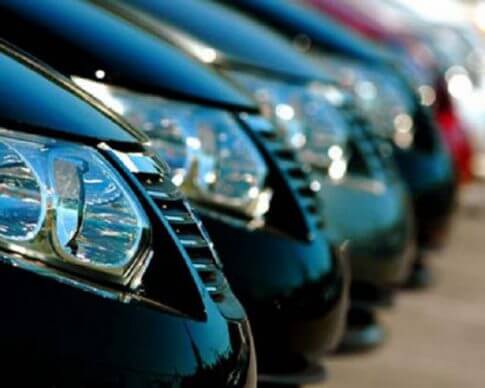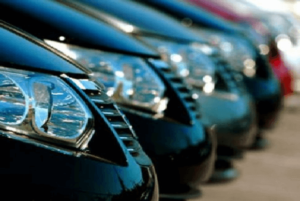
9 November 2017
Top Tips When Buying a Used Car?
Top tips when buying a used car.

Don’t get caught out when buying a used car
Buying a used car can be a frightening for some, but these simple tips can help find the right car for you without paying over the odds or buying a ‘lemon’.
Buying a used car from a manufacturer often provides peace of mind, but it can also cost you more than a private sale. If you know what to look for and do the right research you can purchase a great used car at a great price privately.
Here are our top tips.
Budget
Set yourself a strict budget based on what you can afford. Remember that purchase price is just the start though, as there are ongoing running costs like fuel, maintenance, insurance, plus the interest on any finance used for the purchase to consider. You can save money on annual Roadside Assistance membership buy utilising Roadside Response Pay As You Go assistance.
Research
Research, Research & Research, this is the best way to ensure you have an understand of market values. CarsGuide.com.au is a great website to help you get an idea of what vehicles are available within your chosen budget. There are thousands of vehicles for sale to choose from, and there’s a handy value guide to help you know what to pay. Be careful of cars that seem too cheap though. If something appears too good to be true, it probably is.
Refine your search
Contact the seller
Don’t be afraid to contact the seller. Always remember to ask these questions about each car you are researching
- How long have they owned the car?
- What is their reason for selling it?
- Has the vehicle ever been damaged?
- What condition is the car in, and is there any issues not show in the photos?
- Will it pass a roadworthy inspection?
- How detailed is the car’s service history and is it with the car?
Plus anything else that is not fully explained in the ad. The more questions you ask, the more
Arranging a pre-purchase inspection
If the person selling the car is a private party and not a dealer, insist on inspecting the car at their home address. If the vendor isn’t willing to show you the car at their home address, they could be trying to hide something. Getting a pre-purchase inspection can be a great way to make sure your vehicle is roadworthy and legal to drive. Full Mechanical inspections can also uncover some hidden issues. Roadside Response provide vehicle inspections starting fro just $110. When you might be investing thousands into a nearly new car, it makes sense to get an inspection done.
Check the car’s history
No matter how genuine or honest the seller may seem, it pays to check the vehicle you are inspecting is not stolen, encumbered by an outstanding loan, or even a previous insurance write-off. You just need the car’s VIN (Vehicle Identification Number) number to check against the databases in the state in which it’s registered. This simple step could save you a lot of money and problems – even before you go to inspect a car.
New South Wales, ACT and Northern Territory
Victoria and Tasmania
Queensland
South Australia
Western Australia
Checking the car
Even if you’re not an expert, make sure you go and look at the car in person. Take a trusted friend with you, if they happen to be a mechanic, that’s even better!
Here’s a few pointers for your personal inspection:
- always organise inspections during daylight, never in the dark or in rain that could conceal body marks, dents, rust and other defects.
- check underneath the body, bonnet and carpet for rust and signs – such as evidence of welding or paint over-spray (which may indicate the car has been repaired after a crash). If you see anything suspicious ask the seller about it.
- check the gaps between the body panels are equal – if not, this could indicate the vehicle has been involved in an accident
- under the bonnet, look for signs of any oil leaks. Check the dipstick. If the oil level is low, the owner hasn’t been looking after the car properly.
- look around the oil filler cap for any sign of white substances – this can be an an indication the head gasket is leaking which can be very expensive to repair.
- check the tyres – including the spare. Make sure that they’re wearing evenly. If the tread is worn, make sure you consider the cost of replacement tyres in your overall budget.
- inside the car, make sure all switches and features work, such as lights, indicators, air conditions, radio et
The test drive
A test drive is really important. If the seller refuses to let you test drive the car – walk away. Before you set off, turn the steering wheel from one lock to the other to check for any play, or any irregular noises that could indicate power steering problems. listen for any irregular noises or vibrations from the engine, when driving it.
Price negotiation
There is often leeway for bargaining. Make a list of any faults you discovered during the inspection, and negotiate based on the cost of fixing these problems. If there are no faults, suggest a reasonable figure beneath the asking price. The seller will then either accept, decline, or suggest a price closer to the asking figure. Work through this process until both parties agree.
Payment and paperwork
Make sure all the registration and service history paperwork is in order, and the details match the seller. Also make sure you have original versions of everything – never photocopies. If you’re making a payment or even just a deposit, get a receipt and make sure the seller’s full details are on it. Most, if not all state registration papers will include a receipt for this purpose.
Ongoing Repairs and Maintenance
No mater how well maintained your car, there will be ongoing maintenance required. Annual servicing, tyres, battery replacement, wiper blades, light globes etc. Ensuring you maintain your vehicle well, not only increases the safety and performance of your car. Its re-sale value will be determined by how well your car presents to the next seller. There are various independent and national mechanical workshops you can choose or if your time poor or if you have broken down; you can opt for a mobile repairer.
Roadside Response provide ‘we come to you’ repairs for tyres, if you run out of fuel, have a mechanical issue or need a new a car battery. We can even tow your car to an authorised repairer if we cant fix the problem roadside. Whatever your breakdown or mechanical issue is, we can help 24 Hours a day, so its worth saving the national breakdown number in your phone just in case. Here it is 1300 468 931
Our national Response Centre can give you help and advice if you car suffers that unfortunate breakdown or need new tyres. Getting you back on the road quickly and hassle free.
 1300 468 931
1300 468 931




